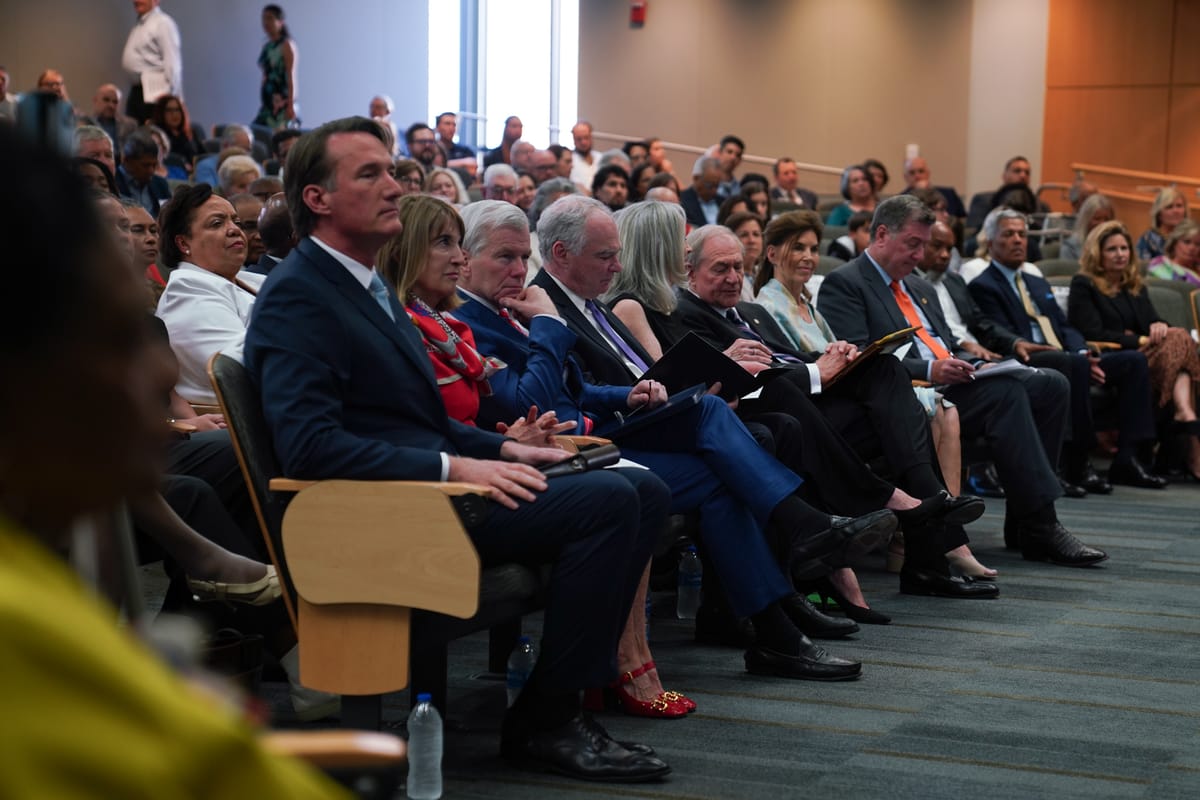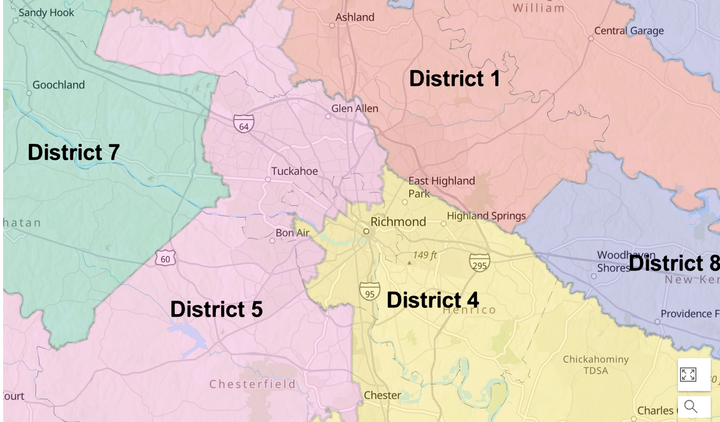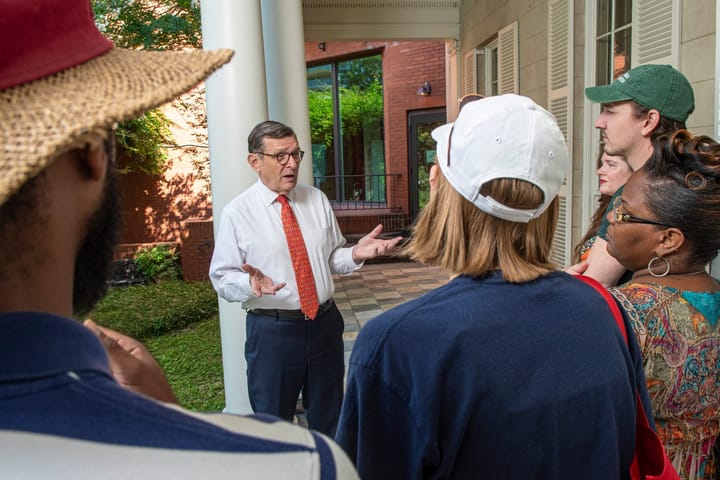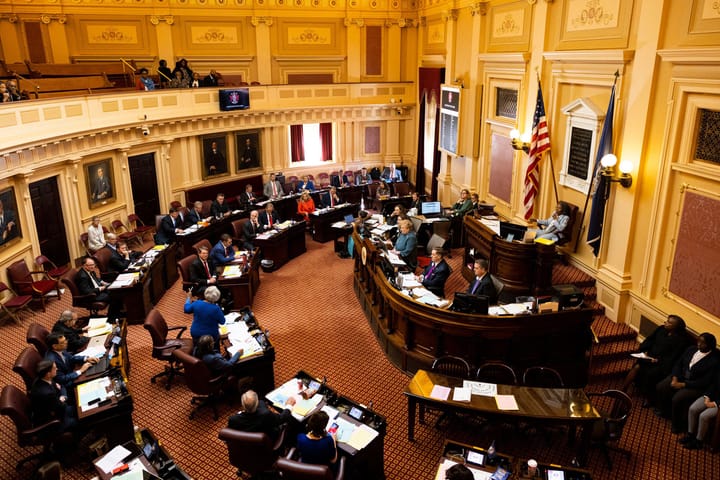Former governors pay tribute to Brown v. Board, but disagree on how to continue its legacy

It was more than 70 years ago when 16-year-old Barbara Rose Johns and other students went on a strike to protest the poor conditions of their school – Robert Russa Moton High School – a segregated, tar paper shack high school located in Farmville.
The walkout initiated a civil rights case – Davis v. County School Board of Prince Edward County – which later became one of the five cases consolidated into Brown v. Board of Education, where Supreme Court justices unanimously decided that segregation in public schools was unconstitutional.
Saturday, seven Virginia governors gathered at Virginia Commonwealth University to commemorate the landmark ruling, discuss racial and educational progress and emphasize the need to do more work to address disparities in the state.
“Our gathering today is … critical, because we will never know where we're going, unless we know where we've been,” said current Gov. Glenn Youngkin.
Former Gov. Bob McDonnell, who organized the gathering along with Del. Delores McQuinn (D-Richmond), said that governors traditionally only get together for inaugurations, funerals and whenever they’re invited to the executive mansion. But the reason for them to be at this event, he said, is listed in the preamble of the U.S. Constitution: “to form a more perfect union.”
About 300 attendees listened to the seven governors speak about the history of the ruling, pay respect to Johns and other Black leaders in Virginia, and highlight the work they did in office, while advocating for what they want to see take place in Virginia’s education system.
Youngkin pointed out discrepancies in academic outcomes of students from economically disadvantaged backgrounds when he came into office, and emphasized his efforts in passing the Virginia Literacy Act and the opening of 15 lab schools by fall of this year.
Former Gov. Jim Gilmore expressed a need for governors to listen and learn from the experiences of Black people.
“Who am I – a white former governor, a white Southerner – to stand up here and lecture African Americans about what their lives are really like?” he asked. “It seems to me that we have to listen at all times.”
Gilmore also said that the elimination of segregation needs to occur within white and Black churches, asking that churches be more welcoming to the opposite race.
At times, what one governor advocated for in the future of education appeared to be at odds with a different governor. Former Gov. Tim Kaine, a Democrat and current U.S. senator, expressed appreciation for both public and private schools, but advocated for public funding to solely go to public schools during his speech, especially during a time when there are threats to public education by means of the Trump administration.
McDonnell, who is Republican and spoke after Kaine, said that he might have differences with the current senator, stressing that more money should go to public charter schools that are privately run.
“We’ve got the worst charter school law in the country,” McDonnell said.
Wilder skips event to protest Youngkin’s DEI stance
In each of their speeches, the governors highlighted other Virginia Black leaders, like Oliver Hill, a civil rights attorney from Richmond who helped initiate the Davis v. Prince Edward School Board case, Lt. Gov. Winsome Earle-Sears, who was present at the event, and Black senators and delegates serving in the state. Despite that, Kaine pointed out the presence of all white male governors at the event and expressed why diversity in leadership is crucial.
There were also many mentions to former Gov. Douglas Wilder, the nation’s first elected Black governor, who was not in attendance.
In an early May post to his blog, Wilder Visions, Wilder acknowledged the event and said that Youngkin “continues his public campaign to purposely distort the meaning of Diversity, Equity, and Inclusion.”
“For those who continue to support this folly, I say, ‘The Mardi Gras is over; it’s time to unmask,’” he wrote.
Former Gov. George Allen also spoke at the event. Former Gov. and current U.S. Senator Mark Warner and former Gov. Terry McAuliffe both spoke by video from their offices.
“While Brown versus Board was a triumph, it was not the end of the fight,” Warner said. “There is still so much significant work to do.”
The Richmonder is powered by your donations. For just $9.99 a month, you can join the 1,000+ donors who are keeping quality local journalism alive in Richmond.
VUU, Regent announce partnership
Representatives of two universities, Virginia Union University and Regent University, also announced a partnership in reconciliation between the two private schools. Joan Johnson, dean of the school of education at VUU, said that the universities have agreed to help expand VUU’s online classes, grow undergraduate programs, and use Regent University’s media and communications.
“This partnership is grounded in shared faith, and we believe that faith is not just a foundation, but a forward strategy,” she said.
Virginia Union is a Baptist university, while Regent was founded by Evangelist Pat Robertson.
Other speakers and attendees included VCU President Michael Rao, State Secretary of Health and Human Resources Janet Vestal Kelly, State Superintendent of Public Instruction Emily Anne Gullickson and Mayor Danny Avula. Barbara Johns' sister, Joan Johns Cobbs, was also in attendance. The event was hosted by VCU and the Virginians for Reconciliation.
Contact Reporter Victoria A. Ifatusin at vifatusin@richmonder.org
(VCU is a sponsor of The Richmonder, but did not influence or review this story.)






